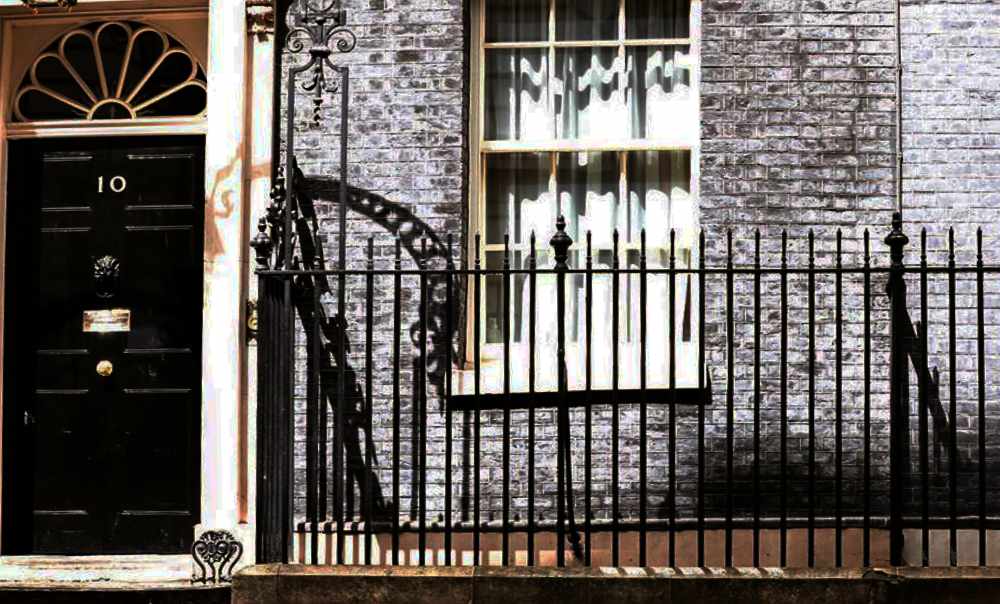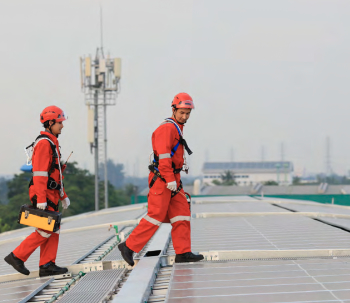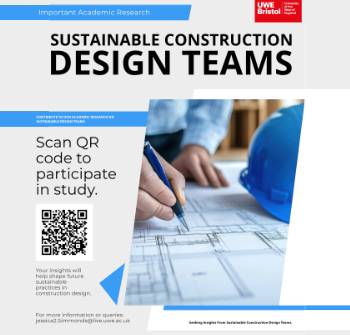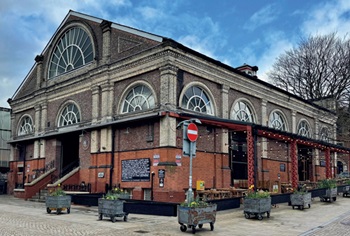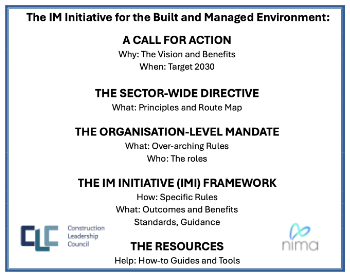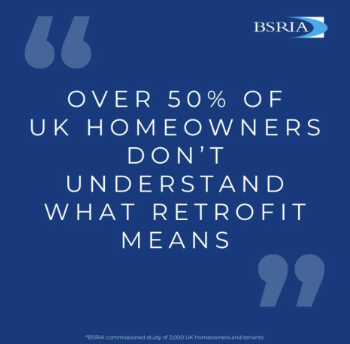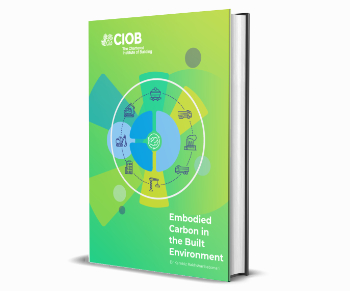The construction industry ramps up for the general election
[edit] General election announcement
On a rain-soaked Wednesday evening, May 22, 2024, Prime Minister Rishi Sunak announced he was calling for a general election to be held in July. Sunak said he was proud of the government's record during his four years, which were some of the 'most challenging times since the Second World War', and he was proud of the public response to those challenges and proud to be British. Kier Starmer, in response, said the election was the 'moment the country needs and has been waiting for, a moment where 'by the force of our democracy, the power returns to you'.
Here is a brief look at some of the reactions, from the construction industry directly after the announcement, as well as manifestos, charters, focus areas and campaigns prepared and finalised in the months before and after.
[edit] UK Green Building Council campaign
Shortly before the announcement for a general election the UKGBC published a campaign, outlining how any incoming government could build a better future for Britain, in partnership with the built environment industry. Stating 'Renewing the places we live, work and play is the biggest opportunity for an incoming government to tackle the crises facing the country – from soaring energy, housing and health costs, to left behind and vulnerable communities, and climate and nature breakdown.'
The campaign calls for decisive action to create opportunities (the UKGBC one pager), for any incoming government across four areas:
- 1. Making home upgrades an easy choice
- 2. Making new developments high quality, well-connected and green
- Putting nature & climate at the core of planning.
- Stronger sustainable buildings standards.
- Restricting embodied carbon emissions.
- Regulating to protect and restore nature.
- 3. Protecting communities from climate risks.
- Prioritising nature-based solutions.
- Increasing urban tree cover.
- Investing in resilient retrofits.
- A robust national climate safety plan.
- 4. Renewing town centres.
- Raising energy performance standards.
- Modernising the Landlord and Tenant Act.
- Tax incentives for small businesses.
- High standards for repurposed buildings
For further information and details visit the UKGBC General Election Policy Briefing pages here.
[edit] Chartered Institute of Architectural Technologists focus areas
As professionals deeply engaged in shaping the built environment, CIAT recognises the crucial role our sector plays in addressing societal challenges. We have identified critical areas on which the Government should collaborate with CIAT and the wider sector to ensure we create a built environment that is agile, responsive to challenges, prosperous and led by world-class expertise.
The UK's actions on key issues such as net zero and building safety must be dramatically expedited so we can produce healthy, safe and sustainable communities. In the wake of the Grenfell Tower tragedy, the inquiry into the poor construction of Scottish schools, and RAAC in public buildings, competent built environment professionals are more important than ever, and for the UK to compete on a global scale, we need to address the skills shortages in our sector.
The time for action and delivery is now, and we call upon the UK Government to consult with CIAT and the wider built environment sector, which is perfectly placed to offer support and advice on the associated challenges our country faces.
We present this three-point plan to the next UK Government, outlining key areas of focus to build a sustainable future for our nation. This will require a coordinated effort from Government, the sector, and communities to overcome barriers and accelerate progress towards a more sustainable and resilient built environment.
Areas of focus for the next UK Government:
- Low carbon and retrofit - Creation and use of our built environment is responsible for approximately 40% of the UK's carbon emissions. Tighter regulation must be implemented to achieve our net-zero goals whilst also being mindful of the financial impact. Government must prioritise retrofit of housing, public buildings and infrastructure in order to reduce carbon emissions and meet climate targets.
- Building safety - Building safety is a critical aspect of responsible development and management of buildings and it is fundamental to restoring and maintaining public confidence in the built environment following tragedies, most notably Grenfell. We must work collaboratively with the Government to ensure ongoing competence of those that work within this critical area.
- Skills shortages and recognition - The UK needs a wider breadth of built environment professionals with different specialisms to ensure we can deliver on key government priorities as well as its infrastructure pipeline. The Government is challenged with giving greater support to learners and new entrants into the sector, and providing greater recognition to built environment professionals who are competent and qualified to undertake important functions.
To find out more visit https://architecturaltechnology.com/about/ciat-recommendations-improved-built-environment.html
[edit] Chartered Institute of Building manifesto
Immediately after the announcement Eddie Tuttle, Director of policy, external affairs and research at CIOB, said: “We look forward to the publication of the party manifestos to see what each one is proposing on matters key to the built environment sector including housing, levelling up, education and skills, sustainability and building safety. Our own manifesto will be published next week and between now and July 4 we will be actively contacting prospective parliamentary candidates to stress the important role our industry plays in the economy as well as in the safety and wellbeing of the communities it builds for, to ensure the next government, whoever that may be, understands how it can better support the sector to thrive.”
At the end of May, CIOB launched its manifesto outlining how a future government can support the built environment sector. The manifesto entitled ‘CIOB’s Manifesto for the Built Environment – Opportunities for future proofing the construction industry’ covers four key themes; Environmental Sustainability, Quality and Safety, The Future of Construction, and People and Skills. It outlines short, medium and longer-term policy recommendations to address some of the major challenges facing construction and society including late payments to supply chains, the ongoing skills shortage, better opportunities for SMEs and improving diversity and inclusion in the sector.
Caroline Gumble, CEO at CIOB, said: “Now the date for the UK General Election has been confirmed, we’ve launched our manifesto so we can engage with prospective parliamentary candidates while they’re developing their own campaigns.
“Candidates come from a range of backgrounds and don’t always understand the complexities and importance of the built environment sector, which is a major economic driver so it’s down to us all as the experts to educate them. It’s important they know what support is needed to enable the industry to play its part in creating a safe and sustainable built environment for everyone.”
CIOB’s manifesto recommendations are:
- Environmental Sustainability
- Develop and implement a green skills fund
- Adapt building regulations to include whole-life carbon assessments
- Develop and implement a national retrofit strategy
- Quality and Safety
- Review the voluntary status of consumer codes for new-build housing
- Provide fairer opportunities for SME housebuilders
- Reform the current Land Value system
- Future of Construction
- Tackle late payment culture
- Develop and implement a strategy for Modern Methods of Construction
- Use geographical clustering to level up the UK
- People and Skills
- Include EDI (Equality, Diversity and Inclusion) commitments in public sector contracts
- Overhaul of the Apprenticeship Levy
- Introduce a Built Environment GCSE
Alongside the manifesto, CIOB will also be launching a dedicated election page on its website for its members to stay updated on key dates, election candidates and what the political parties are saying in their own manifestos about the built environment.
Caroline continued: “I strongly encourage CIOB members to use this manifesto and our online resources to engage with those standing for election in the constituencies they live and work in to help push construction further up the political agenda.”
[edit] The Electrical Contractors' Asssociation charter
In November The Electrical Contractors' Asssociation (ECA) launched their Recharging Electrical Skills Charter in the House of Commons. The event was oversubscribed. The reason, because every political party knows finding solutions to the skills crisis is central to future success. Every business knows they cannot grow without a skilled workforce. And everyone is waking up to the fact electricians are crucial to society and the economy.
Electricians are in the vanguard of the shift to net zero. Yet there are simply not enough of them. Electrification of the UK is expected to grow ten-fold in the next decade to meet our net zero targets. The rapid electrification of the country creates complex challenges. We need skilled workers to install, maintain and integrate net zero technologies, safely. Professional electricians are key to the UK making a safe transition to net zero. The new government must step up to the skills challenge to prepare for an electrified UK.
In the heat of an election campaign, where many new issues will be raised, and manifesto pledges made, ECA remains consistent. It continue to offer solutions, borne out of experience, to tackle the lack of skilled electricians.
ECA has created a heatmap using recent data. It shows the size of the electrical workforce in English constituencies. When it comes to apprentice recruitment and qualified electricians, some areas are almost barren. These are red on the map, showing the places where urgent action is needed. Make the electrical skills shortage a campaign issue.
This shortage reaches beyond the industry, it affects everyone. Using the heatmap, members are encouraged to raise the issue with local candidates on the campaign trail. Here ECA give tips on things that could be said to candidates:
- Without professional electricians you cannot install or maintain low carbon technologies.
- Without professional electricians you cannot guarantee the new tech. is properly integrated and therefore energy efficient.
- Without energy efficiency energy bills will remain high.
- Without professional electricians you cannot guarantee the safe and reliable electricity we all have come to expect.
ECA asked Members and the wider industry to support The Recharging Electrical Skills campaign. Member supporters include; Actemium, Clarkson Evans, Edwin James Group, Darke & Taylor, and N G Bailey. They are joined by the Heat Pump Association, the Green Alliance, Renewables UK and many others. Check out the heatmap here.
[edit] Royal Institution of Chartered Surveyors manifesto
The Royal Institution of Chartered Surveyors (RICS) launched its manifesto for the built environment; 'Empowering a Sustainable Future'. in September 2023 as a lead-up to the UK General Election. Highlighting the large-scale challenges faced by the UK's built and natural environments, 'ranging from climate change to a cost-of-living crisis, creating additional difficulties for a housing sector experiencing crucial supply shortages.' Also highlighting how 'endemic skills shortages undermine development in the industry while the workplace has become more fluid post-pandemic' and that built environment needed to reflect the change in workforce behaviour.
The key asks within the manifesto included:
- Increasing the supply of rented homes to meet demand and slow rent rises.
- Delivering a joined-up quality and sustainability strategy.
- Reviewing skills shortages to tackle targets.
- Hitting housing targets with a housing delivery strategy.
- Actioning the recommendations from the recent RICS Decarbonising UK Real Estate that calls for reform to how building performance and EPCs are presented.
- Developing the much-needed National Fire Strategy as called on by industry to raise competency, standards and mitigation. This must include the UN-endorsed International Fire Safety Standards (IFSS) Common Principles.
For further information and details visit the RICS webpage here.
[edit] Royal Institute of British Architects manifesto
The Royal Institute of British Architects (RIBA) published a Manifesto for a Better Built Environment in October 2023, calling on policymakers to place more urgent focus on quality, safety and sustainability in the design and construction of UK buildings.
Published to coincide with the 2023 party conference season, RIBA’s manifesto says that while policy makers must act to boost housing supply to address the severe shortage, concerted action is also needed to ensure that quality and standards are not compromised.
The institute is calling for greater investment in the capacity of local planning departments, enabling them to recruit and retain the highly qualified design expertise needed to deliver well-designed and well-connected new homes.
RIBA’s manifesto highlights the need for improved regulation around measuring the sustainability of new and existing buildings.
It is calling for the introduction of targets that take full account of buildings’ ‘whole life carbon’ - including the ‘embodied carbon’ associated with creating new building materials and ‘operational carbon’ that buildings will produce over the decades they are in use.
RIBA has also reiterated its long-standing call for a National Retrofit Strategy to upgrade the UK’s housing stock, which is among the oldest and least energy efficient in Europe.
RIBA President, Muyiwa Oki, said: “”We urgently need decisive action to deliver a built environment that meets people’s needs, both now and in the future. Policies that usher in the next generation of social housing and establish a national retrofit strategy must be at the heart of this election campaign and delivered by the next Government. The clock is ticking – the time to act is now. All political parties must set out bold and comprehensive plans to deliver a sustainable built environment, using architects’ expertise, that strengthen communities and enrich people’s lives.”
For further information and details visit RIBA webpage here.
[edit] Chartered Institute of Housing comment
Gavin Smart, chief executive of the Chartered Institute of Housing (CIH), said the election: “provides an opportunity to place housing at the centre of the public discourse”. Referencing the CIH’s 10-point plan to increase housing delivery and improve existing homes, Smart said “there is a blueprint for a new government to adopt that will help address the housing crisis.” The CIH’s plan includes more investment in social homes, measures to improve the planning process, more decent homes funding and measures to improve conditions in the private rented sector. (as reported by Housing Today by CIH)
[edit] National Federation of Builders comment
Rico Wojtulewicz, head of policy and market insight at NFB said: "Housing and construction were not mentioned as one of the prime minister’s successes and unfortunately this is because housing and construction have been failed by this government. If Britain is to grow sustainably, its next government needs to reform planning, understand the commercial impacts of its decision and most importantly, talk to those they will rely on to implement their promises.”
[edit] National Housing Federation comment
Kate Henderson, chief executive of the NHF said: “The housing crisis is affecting people of all ages in every part of the country. Without urgent action from the next government, by the end of the next parliament, one in five households will be in unaffordable homes and six children in every school will be homeless. This crisis is the result of decades of underinvestment in social housing and short-term, piecemeal approaches the housing policy, but it can be solved. The beginning of a new parliamentary term is the best time for bold action and long-term thinking, and our sector is ready to work with whichever party is in power to build the affordable homes the country needs.”
[edit] Civil Engineering Contractors Association comment
Director of operations for the Civil Engineering Contractors Association (CECA) Marie-Claude Hemming said it would allow the main parties to set out their plans for strengthening the UK economy, “sounding the starting gun on a new focus on the UK’s infrastructure needs”.
She said CECA wants to see the next government make “clear-cut commitments” to infrastructure policy within the first 100 days in office. Recent years have seen unprecedented shocks to the UK economy, such as the COVID-19 pandemic and the energy crisis prompted by Russia’s illegal invasion of Ukraine,” she added. That’s why it is more important than ever that we take the UK’s infrastructure needs out of party-political considerations, and work to ensure the requirements of businesses and communities will be met irrespective of the make-up of the next UK government.”
[edit] Association for Consultancy and Engineering (ACE) and Environmental Industries Commission (EIC)
The Association for Consultancy and Engineering (ACE) champions infrastructure and the built environment to government and other stakeholders, and the Environmental Industries Commission (EIC) champions new environmental markets to Government and other stakeholders. They work to ensure environmental policies are thoughtful and progressive, regulations clear and enforced, innovation rewarded, and finance and export opportunities are available.
The document A Plan For The Next Government, is more detailed than a manifesto with a 100-day and beyond strategy and practical steps for action, here are some key points :
- A new Department of Infrastructure - by bringing together expertise from across sectors and disciplines, the department will ensure infrastructure investment is prioritised, strategic and aligned to national priorities of nature restoration, mitigating the impact of climate change and delivery of economic growth so people and businesses can flourish in places that are efficient, safe and appealing.
- An updated National Infrastructure and Industrial Strategies - to ensure certainty and sustainability in investment and project delivery. For example, steps include the introduction of smoother planning processes, legislation to prevent cancellation of key projects as well as prompt payment policies and legislation to protect SMEs and unlock innovation.
- A fair and proportionate approach to risk - including legislation for a cap on liability so that SMEs can afford to bid for involvement on large projects and foster greater uptake of innovative solutions.
Download the full document here
[edit] Institute of Air Quality Management (IAQM) and Institution of Environmental Sciences (IES)
Air pollution is the single largest environmental threat to public health. Breathing poor air increases the risk of developing conditions such as cancer, heart disease, chronic respiratory conditions and dementia, and is estimated to cause at least 29,000 deaths each year in the UK. Air pollution also damages and degrades the natural environment. While trends in outdoor air quality are generally improving, recent progress has been slow and the government is not on track to meet the majority of its emissions reduction targets.
There are some emission sources that are lagging significantly behind and need urgent action. Indoor air quality has been historically neglected, despite many of us spending around 90% of our amount of our time indoors. The IAQM has been working to raise the profile of indoor air quality and produced leading guidance for air quality, construction and planning professionals in 2021. Emissions from agriculture and domestic burning also need urgent attention, having seen a significant increase over the last decade.
Healthy air should be the public health mission of the next UK government. Improving air quality will have disproportionate benefits for deprived communities, who are more likely to live close to pollution sources and have existing health vulnerabilities. Many actions taken to improve air quality can also tackle climate emissions, improve biodiversity and reduce noise pollution. Government must work with local authorities and local communities, as well as the environmental science and air quality profession, to deliver an evidence-informed, just transition to healthy air.
Asks for the next UK Government
- 1. Secure a world-leading governance framework for air quality, raising the ambition of existing strategies and targets, and addressing governance gaps
- Raise the ambition of the UK’s air quality targets, setting out a credible plan for achieving World Health Organisation 2021 Air Quality Guidelines (WHO) as soon as possible, including meeting an interim 2030 target of an annual mean concentration of 10 micrograms per cubic metre for PM2.5.
- Introduce a right to clean air into UK law.
- Commit to a regular review of the Air Quality Strategy, to take place at least every three years with a consultation period of at least two months.
- Introduce a statutory requirement for local authorities to produce local air quality strategies for all key pollutants, and to consider PM2.5 in annual status reports.
- 2. Raise the profile of indoor air quality in the UK’s approach to public health and take immediate action to tackle the sources of indoor air quality
- Close evidence and monitoring gaps identified by the Air Quality Expert Group’s 2022 Indoor Air Quality report.
- Deliver a single clear national public health campaign to raise awareness of the health impacts of solid fuel burning in the home, building on the work of the London Wood Burning Project.
- Set out an action plan for phasing out non-essential solid fuel burning in the home.
- 3. Produce ambitious strategies for highly polluting industries and novel contaminants
- Tackle agricultural emissions by publishing a strategy to reduce ammonia, identifying the organisations responsible for delivering improvements and setting ambitious targets for 2030, 2040 and 2050.2. Publish the updated Clean Maritime Plan, which was due to be published in 2022, with ambitious policies to tackle air pollution in ports, as set out by Transport & Environment’s 2024 report.
- Publish the long-awaited Chemicals Strategy, to include regulation on novel contaminants and ‘forever chemicals’ such as PFAS.
- 4. Back local authorities to deliver on clean air, through increased powers, funding and clear guidance
- Clarify and strengthen the powers of local authorities to tackle air pollution, including on idling, wood burning and public transport.
- Provide clear guidance and unambiguous political support for an evidence-based, community-led dialogue on air quality interventions, such as clean air zones and low traffic neighbourhoods.
- Deliver long-term funding to local authorities for air quality management, including urgently reinstating the air quality grant scheme.
- 5. Expand air quality monitoring and alert networks, using high-quality equipment and best practice to provide robust data to inform decision making
- Expand and join-up the air quality monitoring and alerts network, including increased monitoring of black carbon and ultra fine particulate matter.
- Work with the scientific community to set standards, ensuring that monitoring equipment, especially new low-cost sensors, are robust and used appropriately, including by citizen scientists.
The Institution of Environmental Sciences (the IES) is at the forefront of uniting this interdisciplinary field around a shared goal: to work with speed, vision and expertise to solve the world’s most pressing environmental challenges, together. As the global professional membership body for environmental scientists, we support a diverse network of professionals all over the world – and at every stage of their education and careers – to connect, develop, progress and inspire.
The IAQM is the professional body for air quality professionals in the UK, acting as the voice for air quality by producing useful and timely guidance on matters affecting air quality professionals and by responding to Government consultations. The IAQM is committed to maintaining, enhancing and promoting the highest standards of working practices in the field and supports the development of professionals working in the sector.
For the full draft policy priorities document download here
[edit] Architects Climate Action Network (ACAN)
Demands from an ACAN! supporter; your Constituent
Dear [Candidate’s Name],
My name is [Your Name] and I am a resident of [Your Constituency]. As the upcoming general election approaches, I am keen to see you address the Architects! Climate Action Network (ACAN!) election demands that matter to me and my community.
Regulate Embodied Carbon Embodied carbon refers to the greenhouse gas emissions generated by the processes, materials or products used to construct, maintain, refurbish and eventually demolish a building at the end of its life. Despite totaling a staggering 64 million tonnes of CO2e, i.e. around 10% of the UK’s annual emissions, embodied carbon remains unregulated. Urgently implementing regulations to measure and reduce these emissions is therefore a critical step in meeting the UK’s Net Zero targets. The industry has repeatedly expressed support for such reforms through various initiatives, including the most recent Policy Position Paper on Embodied Carbon Regulation (1), which is backed by leading organisations in the built environment sector.
Mandate diverse habitat restoration and protection of non-human life The UK is one of the most nature-depleted countries in the world, with just 53% of its biodiversity remaining. Prioritise brownfield development, ensuring human-led land-use change is matched by at least a 50% environmental net gain of diverse carbon-sequestering and life-supporting environments for all new developments. Calculations to be carried out for all on-site and off-site habitat, nutrient and biodiversity change resulting from development and any losses to be compensated through nature restoration and habitat creation schemes to include peatlands, clean and connected waterways, woodlands, mangroves, marshes, grasslands etc. (2)
Develop and implement a circular economy strategy Setting up of enabling infrastructure, financial incentives and tax reform that will maximise potential of existing buildings and infrastructure. The construction industry accounts for 62% of UK waste and 50% of material use - efforts and policies to boost the circular economy will ensure reduction of waste, retainment of value and further creation of jobs within the UK.
Incentivise building with bio-based materials Bio-based materials are some of the lowest carbon, highest ecological value and healthiest building materials, yet they are misrepresented and superficially perceived as risky. Invest in testing and certification to remove insurance barriers to specification of natural materials, introducing taxes and financial incentives that drive the private sector to do the same. Remove bias in regulations and enable fire-safe, non-toxic and environmentally regenerative specification of timber and other bio-based construction over oil-based products. Invest in UK-based and/or localised schemes to develop regenerative productive landscapes that cultivate low-carbon building products with short supply chains and biodiverse habitat generation.
Give Local Authorities more power over implementing their Planning Policy The current appeal system makes it significantly difficult for Local Authorities to implement and enforce meaningful Net Zero and Biodiversity enhancement policies.
Require planning permission for demolition The greenest building is one that already exists. Demolishing safe and sound existing buildings and replacing them with new ones wastes resources and results in significantly higher carbon emissions than retrofit. If permission is given for demolition, pre-demolition audits should be compulsory to ensure maximum reuse of materials.
Develop and implement an ambitious low carbon transport strategy Prioritise funding to develop greater connectivity via public transport and active travel whilst discouraging car dependant developments.
10-year national programme to retrofit all homes in the UK Energy use in our homes is currently responsible for 17% of the UK's annual CO2 emissions. As well as being an essential part of the strategy for reaching net zero, retrofitting our homes will offer considerable benefits in terms of improved health and comfort. The UK should learn from other countries, such as Ireland and Italy, which are already implementing major retrofitting programmes supported by grants and financial incentives.
Reform VAT to incentivise retrofit projects The current system favours demolishing existing buildings and replacing them with new ones rather than retrofitting them. VAT is not charged on new build projects, but is charged at a rate of 20% on most retrofit projects (excl. some stand-alone energy saving measures are charged at 5%).
Invest in education, training and product innovation A programme of developing climate literacy in the wider public, our education system, government and public services, and industries is needed to promote the transition to net zero. Tens of thousands of skilled construction workers and building professionals need to be trained to deliver a national programme of retrofit and sustainable construction. Further research and development programmes are needed to develop energy efficient and sustainable construction materials and products.
I would appreciate it if you could take some time to respond to my queries. Thank you for your time and consideration.
https://new.express.adobe.com/webpage/2cv7ekEUhpJjG
[edit] Construction Industry Council (CIC)
In anticipation of the UK General Election 2024, CIC presents the manifestos of their members, which outline key sector priorities and highlight the sector’s critical contributions to national policy discussions. The CIC one pager urges the next government to :
- Prioritise enhancing national health and wellbeing through the liveability of the built environment. This involves creating spaces that promote physical and mental health, safety, and accessibility for all.
- Recognise the urgency of developing a collaborative national roadmap with built environment professionals to urgently address climate change and biodiversity decline.
- Invest in innovation across built environment research, education, practice, and lifelong learning. This investment is crucial to drive advancements, equip professionals with new and emerging skills, and sustain the industry’s growth and resilience in the face of future challenges.
It also lists the manifestos of its members including ACE, APM, BRE, CIAT, CIHT, CIOB, LI, RIBA, RICS, and RTPI
VIew the CIC one pager visit here.
[edit] Related articles on Designing Buildings
- Does the Autumn Statement fire the starting pistol for an election campaign?
- Chancellor's 2022 Autumn statement industry response..
- Industry responds as Rishi Sunak becomes new PM.
- The Edge policy proposals for the built and natural environment 2022.
- The general election and why a shortage of electrical apprentices matters.
[edit] External links
- https://www.ciob.org/news/ciob-reacts-to-uk-general-election-announcement
- https://www.bdonline.co.uk/news/sunaks-big-election-gamble-how-the-built-environment-sector-reacted/5129571.article
- https://architecturaltechnology.com/about/ciat-recommendations-improved-built-environment.html
- https://www.pbctoday.co.uk/news/planning-construction-news/construction-industry-reacts-to-shock-general-election-2024-announcement/139921/
- https://www.insidehousing.co.uk/news/no-party-can-consider-itself-ready-to-lead-unless-it-tackles-housing-head-on-sector-reacts-to-general-election-86615
- https://www.cic.org.uk/news/cic-showcases-manifestos-from-across-the-built-environment
Featured articles and news
Quality Planning for Micro and Small to Medium Sized Enterprises
A CIOB Academy Technical Information sheet.
A briefing on fall protection systems for designers
A legal requirement and an ethical must.
CIOB Ireland launches manifesto for 2024 General Election
A vision for a sustainable, high-quality built environment that benefits all members of society.
Local leaders gain new powers to support local high streets
High Street Rental Auctions to be introduced from December.
Infrastructure sector posts second gain for October
With a boost for housebuilder and commercial developer contract awards.
Sustainable construction design teams survey
Shaping the Future of Sustainable Design: Your Voice Matters.
COP29; impacts of construction and updates
Amid criticism, open letters and calls for reform.
The properties of conservation rooflights
Things to consider when choosing the right product.
Adapting to meet changing needs.
London Build: A festival of construction
Co-located with the London Build Fire & Security Expo.
Tasked with locating groups of 10,000 homes with opportunity.
Delivering radical reform in the UK energy market
What are the benefits, barriers and underlying principles.
Information Management Initiative IMI
Building sector-transforming capabilities in emerging technologies.
Recent study of UK households reveals chilling home truths
Poor insulation, EPC knowledge and lack of understanding as to what retrofit might offer.
Embodied Carbon in the Built Environment
Overview, regulations, detail calculations and much more.
Why the construction sector must embrace workplace mental health support
Let’s talk; more importantly now, than ever.
Ensuring the trustworthiness of AI systems
A key growth area, including impacts for construction.







